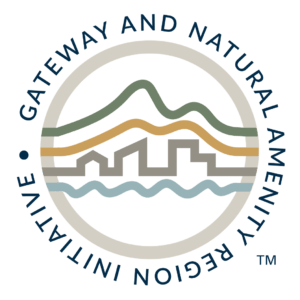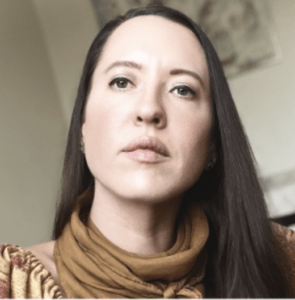 The Wallace Stegner Center’s Environmental Dispute Resolution (EDR) program fosters a culture of collaboration around the environment, natural resource, and broader public policy issues, with a particular focus on Utah and the Mountain West. In an effort to showcase more of our work, we are so excited to share an initiative we’ve been working on over these last few years known as the Gateway and Natural Amenity Region (GNAR) Initiative, founded by EDR Director Danya Rumore, Ph.D.
The Wallace Stegner Center’s Environmental Dispute Resolution (EDR) program fosters a culture of collaboration around the environment, natural resource, and broader public policy issues, with a particular focus on Utah and the Mountain West. In an effort to showcase more of our work, we are so excited to share an initiative we’ve been working on over these last few years known as the Gateway and Natural Amenity Region (GNAR) Initiative, founded by EDR Director Danya Rumore, Ph.D.
What is the Gateway and Natural Amenity Region (GNAR) Initiative?
Small cities and towns outside of significant natural amenities such as national parks, public lands, ski areas, and scenic rivers throughout the western United States are becoming increasingly popular places to visit and live. As a result, many of these gateway and natural amenity region (GNAR) communities—such as Jackson, WY, and Moab, UT—grapple with “big-city” issues, including severe congestion, lack of affordable workforce housing, and concerns about sprawl. Other GNAR communities are just beginning to, or may soon, experience significant growth and tourism pressures.
The GNAR Initiative exists to help western GNAR communities thrive and preserve the things that make them special. Effective and proactive planning is critical for helping GNAR communities preserve and enhance the qualities that make them such desirable places to live and visit. We strive to help provide communities with resources and education to help them work toward this goal.
How does the GNAR Initiative help gateway communities?
Education
- The GNAR Initiative provides education and learning resources to GNAR communities through our webinar series and other efforts aimed at building awareness and understanding of the unique experiences and concerns of western GNAR communities. Our core team also trains graduate and undergraduate students to understand and work in the unique contexts of GNAR communities.
Capacity-building
- Planners, public officials, consultants, and others working with western GNAR communities are seeking tools, information, and resources to assist in addressing challenges. We strive to provide a range of capacity building and planning support for GNAR communities and the people working in them. Check out our GNAR Network or toolkit pages for more info.
Research
- The GNAR Initiative serves as a hub to foster and support multi-university and trans-disciplinary research aimed at better documenting and understanding opportunities and challenges in GNAR communities. It also develops, supports, and studies evidence-based strategies for helping western GNAR communities thrive amid change. To learn more about our research projects and findings, see our research.
Get notified when new articles are posted to the EDR blog. Sign up for our email list »
What’s on the horizon for the GNAR Initiative?
We’re launching an online fall learning series entitled “Planning for a GNARly Future: Re-imagining planning to empower your community,” where each session will introduce cutting-edge practices, principles, and methods on a topic we have identified as important for gateway community planning and development. Participants are also able to join us for an interactive peer-to-peer networking session afterwards. Registration is open and free to attend.
With initial funding from the National Institute for Transportation and Communities, we have launched a flagship multi-year study entitled “GNARly Challenges, GNARly Solutions Study: Integrated housing, transportation, and land use challenge and strategies,” to explore interconnected housing transportation, and land use challenges and strategies in western gateway communities.
How can I get connected to the GNAR Initiative?
In many ways! Whether you’re a community member, partner/practitioner, researcher and/or student, we would love to connect with you and your work in gateway communities in the West. Please visit our GNAR website page for ways to connect with us according to your needs (also please note that we always welcome submissions for our GNARly Blog!).
For those of you working in or with gateway communities, we also recommend signing up for our newsletter to stay the most up-to-date on our efforts.
 Jordan Katcher (she/her) is the initiatives facilitator for the Environmental Dispute Resolution (EDR) program at the Wallace Stegner Center, S.J. Quinney College of Law, University of Utah.
Jordan Katcher (she/her) is the initiatives facilitator for the Environmental Dispute Resolution (EDR) program at the Wallace Stegner Center, S.J. Quinney College of Law, University of Utah.
